
by Scott Muniz | Nov 24, 2021 | Security, Technology
This article is contributed. See the original author and article here.

Official websites use .gov
A .gov website belongs to an official government organization in the United States.

Secure .gov websites use HTTPS A
lock ( )
) or
https:// means you’ve safely connected to the .gov website. Share sensitive information only on official, secure websites.
by Scott Muniz | Nov 24, 2021 | Security, Technology
This article is contributed. See the original author and article here.
VMware has released security updates to address multiple vulnerabilities in vCenter Server and Cloud Foundation. A remote attacker can exploit this vulnerability to obtain access to sensitive information.
CISA encourages users and administrators to review VMware Security Advisory VMSA-2021-0027 and apply the necessary updates.
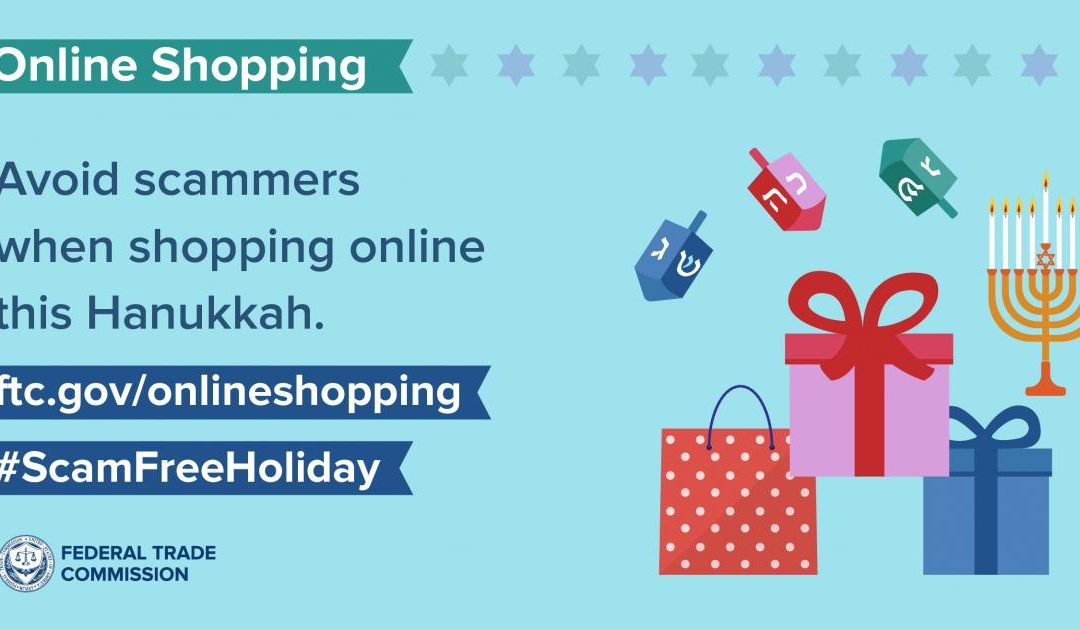
by Scott Muniz | Nov 24, 2021 | Security
This article was originally posted by the FTC. See the original article here.
Hanukkah is all about spending time with loved ones, celebrating traditions, and, for many, giving gifts. So, as you start preparing for all eight nights, here are some things you can do to avoid scammers when shopping online:
- Check the seller before you buy. Search online for the name of the seller and product, plus words like “complaint” and “scam.” And read reviews about the seller and their products, too.
- Look at the seller’s refund and shipping policies. Look for things like who pays the cost for shipping returns, how long you have to return the product, and whether there are any other fees you might have to pay. Check out the seller’s shipping policy, too. If they don’t promise a time to send out your order, they must ship within 30 days.
- Pay by credit card. Using a credit card gives you more rights to dispute the charge if something goes wrong than other types of payment. And never buy from sellers that only accept gift cards, money transfers, or cryptocurrency for payment.
If you spot a scam or experience problems shopping online, the FTC wants to hear about it at ReportFraud.ftc.gov.
Brought to you by Dr. Ware, Microsoft Office 365 Silver Partner, Charleston SC.
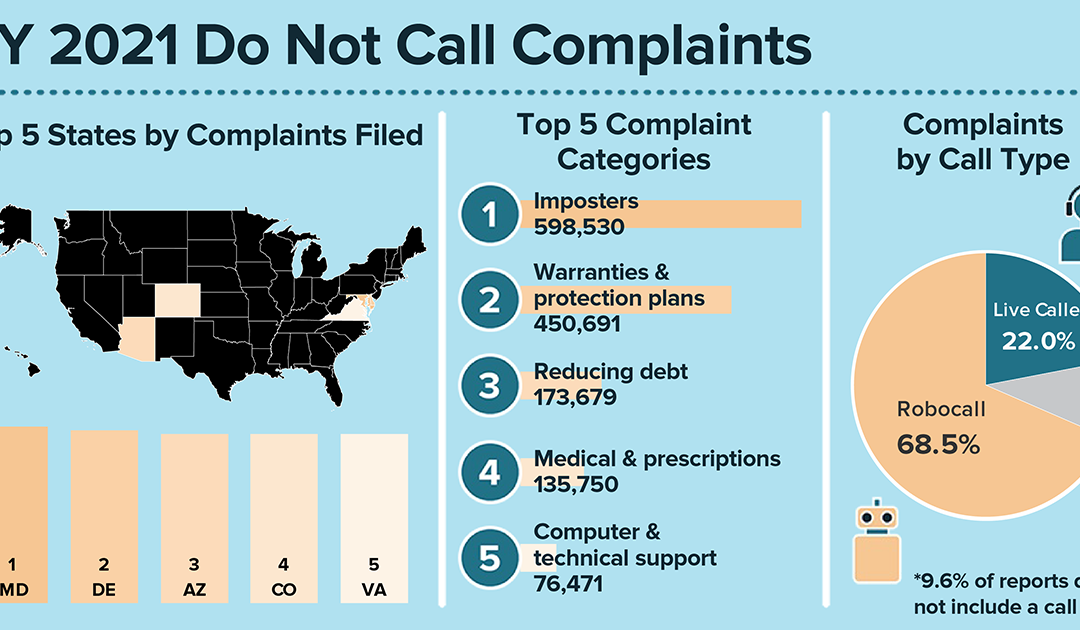
by Scott Muniz | Nov 23, 2021 | Security
This article was originally posted by the FTC. See the original article here.
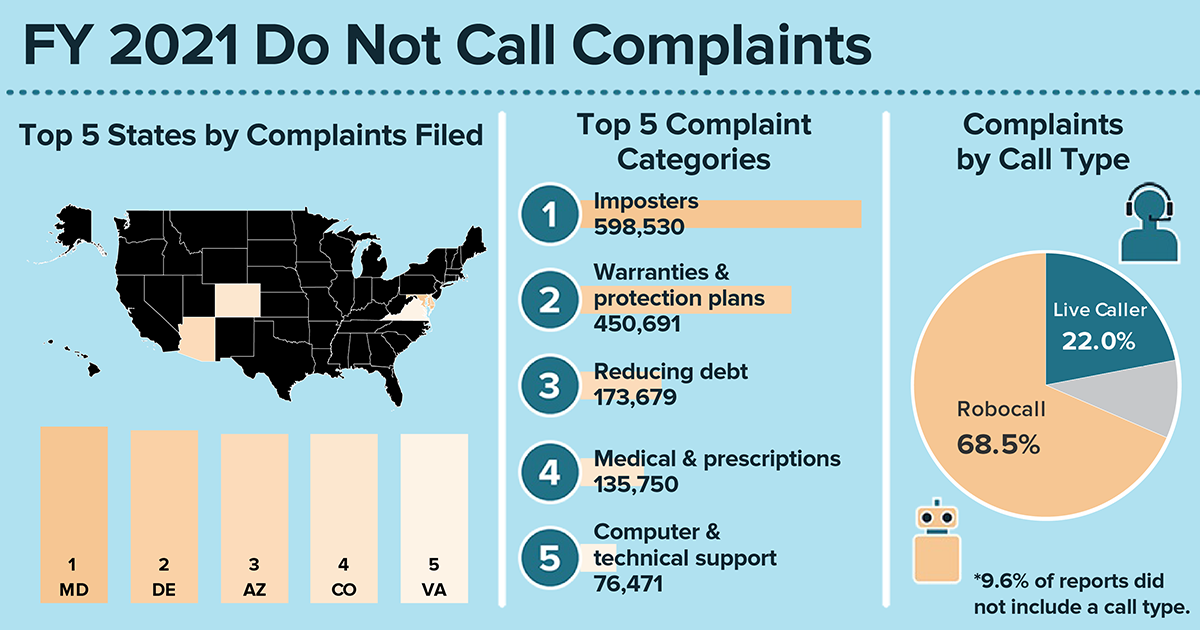 In the past 18 years of the National Do Not Call Registry, those of you signed up for the registry (244 million phone numbers right now) have reported millions upon millions of unwanted sales calls over the years. Here’s a quick look at what you’ve reported this year at DoNotCall.gov about the calls you’re getting:
In the past 18 years of the National Do Not Call Registry, those of you signed up for the registry (244 million phone numbers right now) have reported millions upon millions of unwanted sales calls over the years. Here’s a quick look at what you’ve reported this year at DoNotCall.gov about the calls you’re getting:
- The overwhelming majority of calls reported were robocalls — 68 percent of the 5 million calls you reported during the fiscal year ending October 2021 were robocalls. (If you answer the phone and hear a recorded message instead of a live person, it’s a robocall). Another 22 percent were live calls.
- The most common topic of the calls you reported was imposters, including calls from scammers pretending to be the Social Security Administration or IRS.
- The next most-reported topic — up by more than 175,000 from last year — was warranties and protection plans. Following that were calls about debt reduction, medical and prescription issues, and computers and technical support.
Learn more about these reports, including data for your state.
Your reports show what we all know — even if you’re on the registry, you’re still getting unwanted calls. Legitimate, law-abiding companies typically follow the Do Not Call rules. But scammers often ignore them. To get fewer calls, read about some steps you can take to block unwanted calls.
And please, keep reporting calls at DoNotCall.gov. The FTC and other law enforcement agencies analyze reports to identify and take action against the people responsible for illegal calls and scams. The FTC also takes the phone numbers you report and releases them each business day to help telecommunications carriers and other industry partners that are working on call-blocking and call-labeling solutions.
Learn more about blocking unwanted calls at ftc.gov/calls.
Brought to you by Dr. Ware, Microsoft Office 365 Silver Partner, Charleston SC.
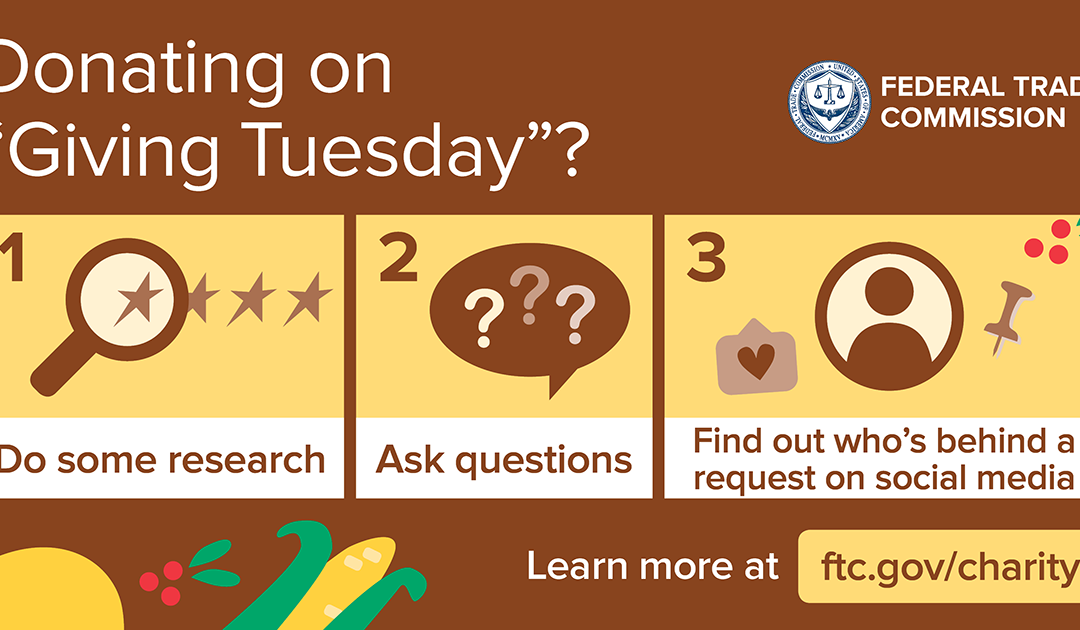
by Scott Muniz | Nov 23, 2021 | Security
This article was originally posted by the FTC. See the original article here.
Giving Tuesday is a great time to show your gratitude by donating to help others. But you don’t want to give money to a fake charity or scammer (any day of the week).
Before you donate this Giving Tuesday ― and anytime you’re asked to give to charity:
- Research the cause or the organization. Search online for the name of the organization or cause with words like “review,” “scam,” or “complaint.” See if others have had good or bad experiences with the charity. Check out what charity watchdog groups say about that organization.
- Know that it’s ok to ask questions. If the request for a donation is over the phone, the caller should be able to answer critical questions. For example, how much of your donation will go to the program you want to help? Is the caller raising funds for a charity or for a Political Action Committee (PAC)? (Donations to PACs are NOT tax deductible.)
- Slow down. You don’t have to give over the phone, and anybody who pressures you might be someone you want to avoid giving to.
- Know who’s making the request. Don’t assume a request to donate is legitimate because a friend posted it on social media. Your friend might not personally know the charity or how it spends money. When you do your own research, double-check the exact name of the organization. Scammers will pick names or use website addresses that sound very similar to legitimate well-known charities.
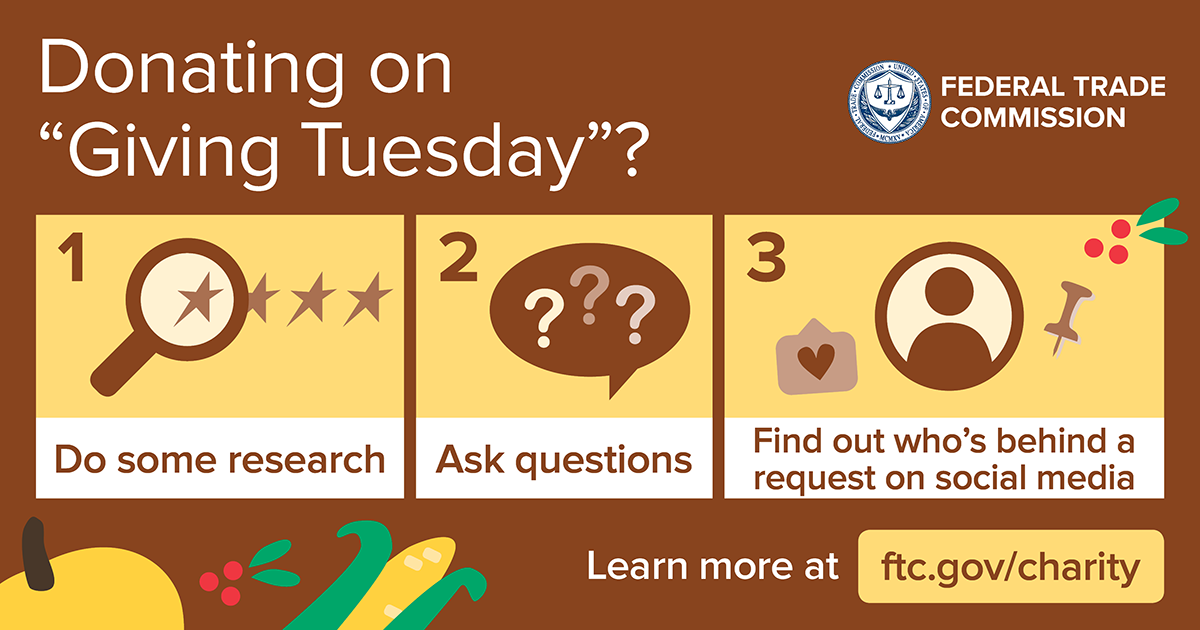
This Giving Tuesday, and in this season of giving, consider starting with a plan for year-end donations. That way, you have time to do research, make your gifts, and tell anyone who asks that you’ve already given. Learn more at
ftc.gov/charity.
Brought to you by Dr. Ware, Microsoft Office 365 Silver Partner, Charleston SC.

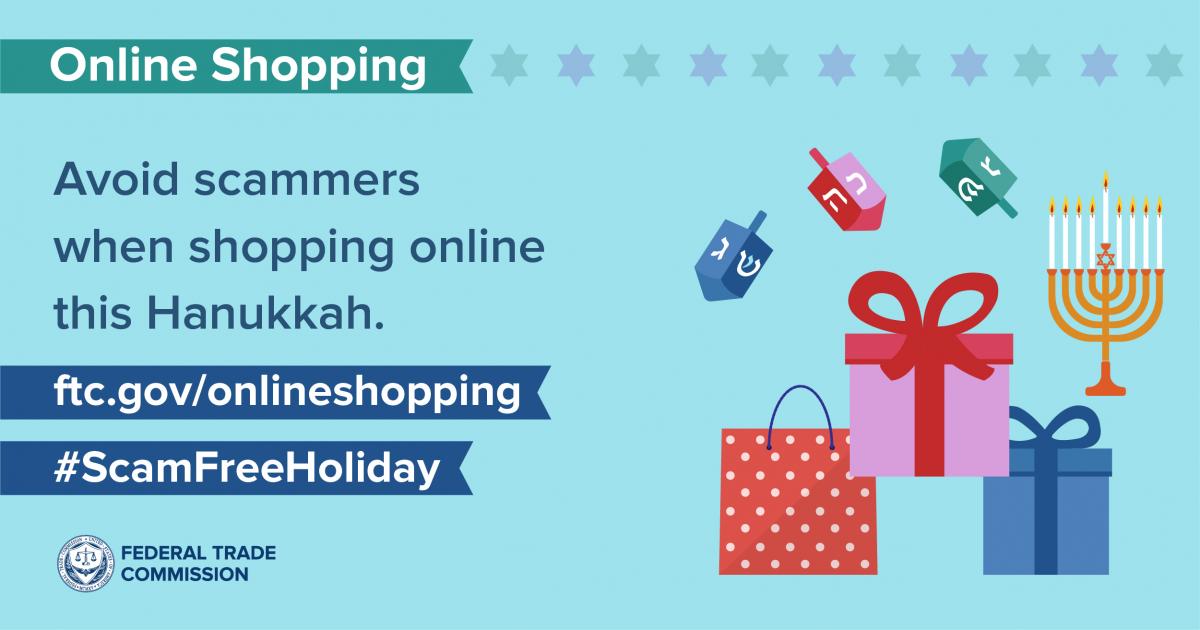

 In the past 18 years of the National Do Not Call Registry, those of you signed up for the registry (244 million phone numbers right now) have reported millions upon millions of unwanted sales calls over the years. Here’s a quick look at what you’ve reported this year at DoNotCall.gov about the calls you’re getting:
In the past 18 years of the National Do Not Call Registry, those of you signed up for the registry (244 million phone numbers right now) have reported millions upon millions of unwanted sales calls over the years. Here’s a quick look at what you’ve reported this year at DoNotCall.gov about the calls you’re getting:

Recent Comments